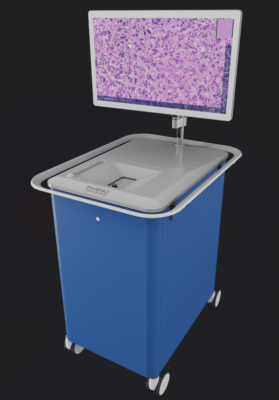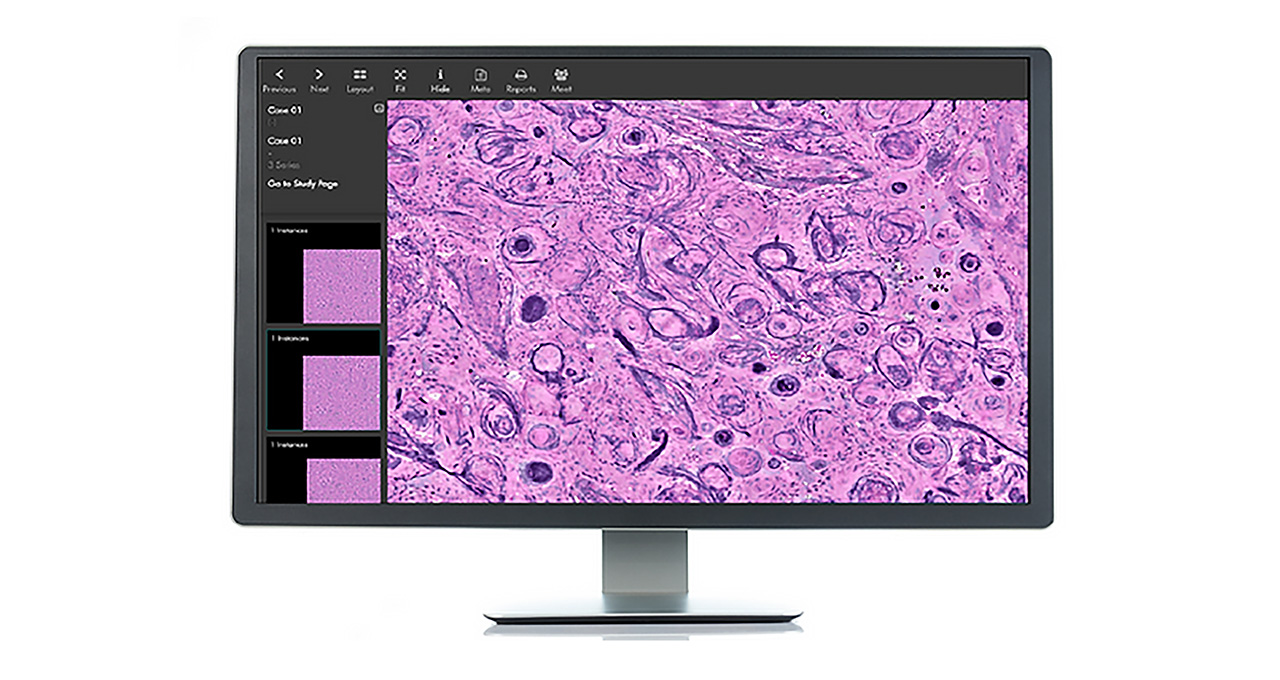Medical-device company Invenio Imaging is developing technology that enables surgeons to evaluate tissue biopsies in the operating room, immediately after samples are collected — providing in just three minutes AI-accelerated insights that would otherwise take weeks to obtain from a pathology lab.
In a surgical biopsy, a medical professional removes samples of cells or tissue that pathologists analyze for diseases such as cancer. By delivering these capabilities through a compact, AI-powered imaging system within the treatment room, Invenio aims to support rapid clinical decision-making.
“This technology will help surgeons make intraoperative decisions when performing a biopsy or surgery,” said Chris Freudiger, chief technology officer of Silicon Valley-based Invenio. “They’ll be able to rapidly evaluate whether the tissue sample contains cancerous cells, decide whether they need to take another tissue sample and, with the AI models Invenio is developing, potentially make a molecular diagnosis for personalized medical treatment within minutes.”
Quicker diagnosis enables quicker treatment. It’s especially critical for aggressive types of cancer that could grow or spread significantly in the weeks it takes for biopsy results to return from a dedicated pathology lab.
Invenio is a member of NVIDIA Inception, a program that provides cutting-edge startups with technological support and AI platform guidance. The company accelerates AI training and inference using NVIDIA GPUs and software libraries.
Laser Focus on Cancer Care

Invenio’s NIO Laser Imaging System is a digital pathology tool that accelerates the imaging of fresh tissue biopsies. It’s been used in thousands of procedures in the U.S. and Europe. In 2021, it received the CE Mark of regulatory approval in Europe.
The company plans to adopt the NVIDIA Jetson Orin series of edge AI modules for its next-generation imaging system, which will feature near real-time AI inference accelerated by the NVIDIA TensorRT SDK.
“We’re building a layer of AI models on top of our imaging capabilities to provide physicians with not just the diagnostic image but also an analysis of what they’re seeing,” Freudiger said. “With the AI performance provided by NVIDIA Jetson at the edge, they’ll be able to quickly determine what kinds of cancer cells are present in a biopsy image.”
Invenio uses a cluster of NVIDIA RTX A6000 GPUs to train neural networks with tens of millions of parameters on pathologist-annotated images. The models were developed using the TensorFlow deep learning framework and trained on images acquired with NIO imaging systems.
“The most powerful capability for us is the expanded VRAM on the RTX A6000 GPUs, which allows us to load large batches of images and capture the variability of features,” Freudiger said. “It makes a big difference for AI training.”
On the Path to Clinical Deployment
One of Invenio’s AI products, NIO Glioma Reveal, is approved for clinical use in Europe and available for research use in the U.S. to help identify areas of cancerous cells in brain tissue.
A team of Invenio’s collaborators from the University of Michigan, New York University, University of California San Francisco, the Medical University of Vienna and University Hospital of Cologne recently developed a deep learning model that can find biomarkers of cancerous tumors with 93% accuracy in 90 seconds.
With this ability to analyze different molecular subtypes of cancer within a tissue sample, doctors can predict how well a patient will respond to chemotherapy — or determine whether a tumor has been successfully removed during surgery.
Beyond its work on brain tissue analysis, Invenio this year announced a clinical research collaboration with Johnson & Johnson’s Lung Cancer Initiative to develop and validate an AI solution that can help evaluate lung biopsies. The AI model will help doctors rapidly determine whether collected tissue samples contain cancer.
Lung cancer is the world’s deadliest form of cancer, and in the U.S. alone, lung nodules are found in over 1.5 million patients each year. Once approved for clinical use, Invenio’s NIO Lung Cancer Reveal tool aims to shorten the time needed to analyze tissue biopsies for these patients.
As part of this initiative, Invenio will run a clinical study before submitting the NVIDIA Jetson-powered AI solution for FDA approval.
